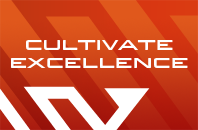Resources
|
IS OVERLOOKING A CANDIDATE’S JOB “FIT” COSTING YOUR COMPANY TIME AND REVENUE? |
|
By Geoff Anthony, Assessment and Development Consultant, The Vaya Group |
| Download PDF |
About a year ago, a leading medical software company approached Vaya about a poorly performing sales representative. The company hired this previously top performer from a competitor to work the same territory and prospects. Thinking that hiring a top producing rep was a no-brainer, they skipped conducting a talent assessment. But after six months, the employee wasn’t performing well, territorial revenues slumped, and the company was stumped. They asked us: What happened? What did we miss?
After Vaya assessed the individual, it was discovered that the employee scored well below previously established talent benchmarks on two critical-to-success (and difficult to change) competencies for the new culture and company. These key competences were not significant indicators of success at the employee’s former company. In fact, had the hiring company
conducted a pre-hire assessment prior to bringing the individual on board, these red flags would have been obvious.
Sound familiar? The cost of a bad hire in both time and money could be up to $150,000 for an employee with an annual salary of $60,000. Many companies overlook the assessment of a candidate’s job fit, especially if their background or pedigree suggests a “perfect” fit. Yet fit is
not simply experience and skills, but also the aptitudes and behavioral traits needed for success at a hiring organization. Research has proven that most new hires fail because they lack soft competencies, such as creativity, empathy or self-discipline, not simply skill sets. In one industry study, Leadership IQ, a prominent leadership training organization found that almost 90 percent of new hires failed for attitudinal reasons and only about 10 percent for lack of skill.2
How to Identify Needed Soft Skills
Although finding the perfect “fit” is never a guarantee, organizations can reduce the risk of mis-hiring by carefully assessing not just experience, but also a candidate’s interpersonal skills needed to succeed at the job. To help identify these criteria, below are three tips for a more effective hiring process.
- Identify characteristics of individuals who have already demonstrated success in the job. During this step, the key here is to focus on the person’s soft skills in addition to their credentials, technical expertise or experience. What soft skills do successful employees in the same position exhibit that helped lead to their success? Were they competitive? Creative thinkers? Good relationship builders?
- Identify the characteristics of individuals who have failed at the job. Beyond their knowledge or credentials, why did unsuccessful employees perform poorly? What soft skills did they lack or were other key skills missing that are critical for this job or our company?
- Create a competency model and assessment interview. By specifying the technical requirements and soft skills needed for the job, employers will be able to more easily differentiate between the best candidates and one’s that lack the “success gene”. In addition, the model will help hiring managers or human resources (HR) leaders create comprehensive interview
questions that effectively assess whether the candidate has the personal attributes needed to be successful for the job.
Good Fit Pays and Pays
Assessing job candidate’s emotional competencies is not easy, yet if not conducted, can balloon employee costs exponentially. Dr. Pierre Mornell, author of 45 Effective Ways of Hiring Smart, warns “If you make a mistake in hiring, and recognize and rectify the mistake within six months, the cost of replacing that employee is two and one-half times the person’s annual salary.”3
By successfully identifying the hard and soft skills needed for success in a job and then proactively seeking out individuals who meet those criteria, companies can reduce or prevent considerable turnover, employee disengagement and lost productivity. In fact, talent assessment can impact and improve every part of the talent lifecycle—from pre-hire and selection to promotion decisions, succession planning and the creation of ongoing training and development programs. By making talent assessment a part of your organization’s culture, you’ll be better equipped to achieve the business results you desire and drive success.
Download The Application Study PDF ![]()
Learn More:
The Vaya Group provides comprehensive talent solutions to several leading organizations, including CitiGroup, AstraZeneca, Hewlett-Packard, and General Electric. Call us today at 630-906-3046 to discuss your talent optimization objectives and learn more about how we can fuel your success with our effective competency models, executive assessment, leadership development, talent analytics and our exclusive Talent Optimization Framework™.
